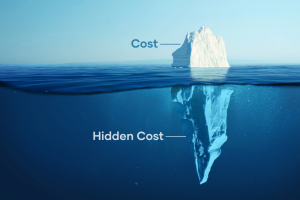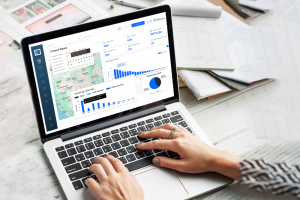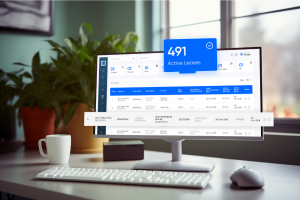Are you considering lease management software to streamline your leasing process? When it comes to managing leases, having the right software can truly transform your operations. A demo isn’t merely a presentation—it’s a valuable chance to explore how the software can assist in lease administration. As you get ready for this important meeting, keep in mind that asking the right questions can help you uncover both the software’s advantages and drawbacks.
The demo allows you to see how this tool can simplify your processes, improve compliance, and support better decision-making. Don’t just skim the surface. Focus on the details that are most relevant to your business. The aim is to determine if the software meets your specific needs and can evolve alongside your business. With the right questions in hand, you can make the most of this opportunity and ensure that the solution you select will promote efficiency and success.
Here’s a concise list of questions to help guide your assessment.
1. Does your lease management software centralize lease data?
To understand the effectiveness of the lease management software, find out if it consolidates lease data. This question is crucial to prevent the common errors that arise from using Excel sheets, like data discrepancies, missed deadlines, or version control issues.
Your team will be able to quickly access important lease agreements and information with the help of a centralized data system that enhances accessibility and organization. This feature guarantees compliance and lowers the probability of errors, which streamlines your lease management procedure in the end.
2. How is your software maintaining the transparency of lease data at different levels of the organization?
Lease data tends to get lost in piles of spreadsheets and multiple documents, which makes it difficult to access, track, and share information on issues of paramount importance. This disorganized procedure leads to confusion, hampers collaboration, and leads to poor decision-making.
Collating lease data into a centralized system ensures seamless access, better organization, and improved visibility. The maker-checker process plays a critical role in maintaining transparency and accountability—while the maker enters lease data, the checker meticulously reviews, and verifies it. This dual-layer validation ensures that information is systematically reviewed leaving no room for errors.
3. Does your lease management software offer simulations and alerts for critical lease dates and financial metrics?
This is an important question to ask to find out how well the program can manage your leases. As a tenant, simulations allow you to stay ahead of different situations, including rent escalations, lease renewals, and waivers. Furthermore, reminders for important lease dates, such as deadlines for renewal or expiration, help guarantee you don’t miss important deadlines.
As a developer, these simulations and timely alerts help you forecast rental income changes, track upcoming lease renewals, ensure timely action on renewals, and therefore prevent financial loss. You may assess the degree to which the software supports your strategic planning and improves overall lease management efficiency.
4. Is your lease management software scalable?
This question has a big impact on making sure the lease management software can keep up with your growing business. As you add more properties to your portfolio, you’ll need a solution that can handle more data, users, and leases without slowing down or losing features.
A system that scales well means you won’t have to spend a lot of money on upgrades or moving to a new system later on. This helps your business stay productive and flexible as it changes over time. When you ask about scalability, you’re checking if the software can support your business now and down the road.
5. What types of reports can the lease management software generate?
Asking this question helps you evaluate the software’s ability to provide insights and analysis tailored to your needs. Customizable report generation allows you to track key metrics, analyze financial performance, and monitor lease compliance. Understanding the reporting capabilities ensures that the software can deliver actionable data for better decision-making, enhancing overall lease management efficiency.
It is imperative that when evaluating lease management software during a demo, you ask the right questions to ensure a selection that meets your business requirements. Each feature, from the ability to centralize lease data, customizable reporting, and scalability, should be assessed, as collectively they play an important role in making your operations more efficient, reducing risks, and improving decision-making regarding your real estate portfolio.
Asking the right questions about the software product and the components mentioned above is essential. This ensures you are obtaining a product that achieves efficiency, can help your business grow, and improves the way you manage leases.
Are you ready to elevate your lease management process? Try CRE Lease Matrix and see how easy lease management can be, with data centralization, custom reports, and compliance management features, all in one product! Schedule a demo today!






